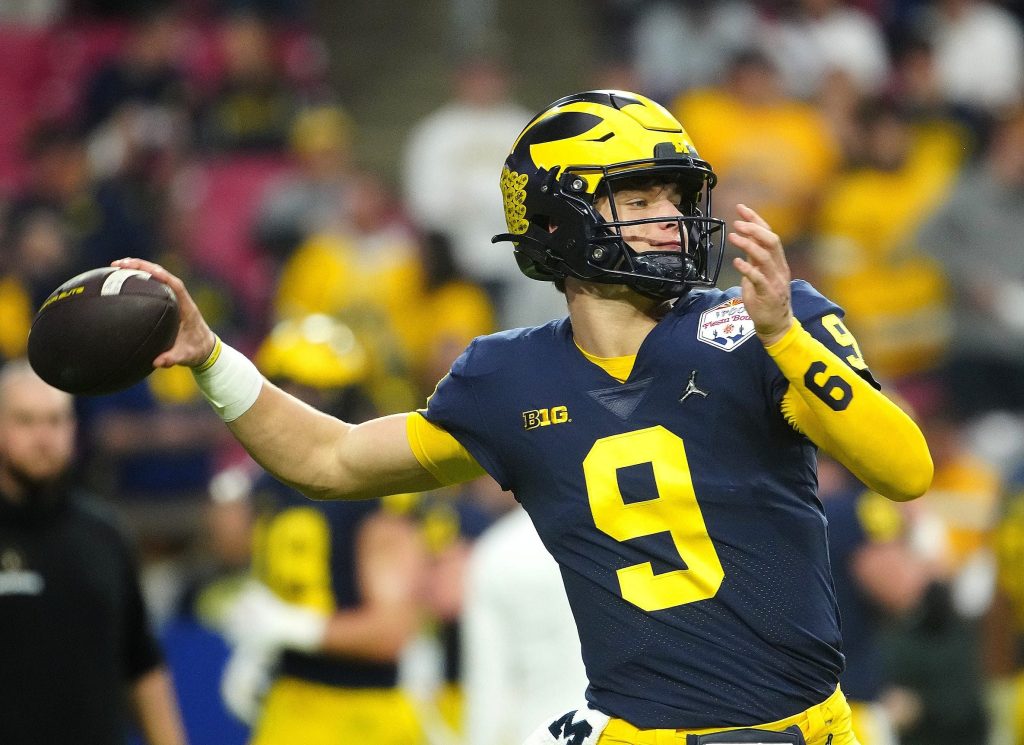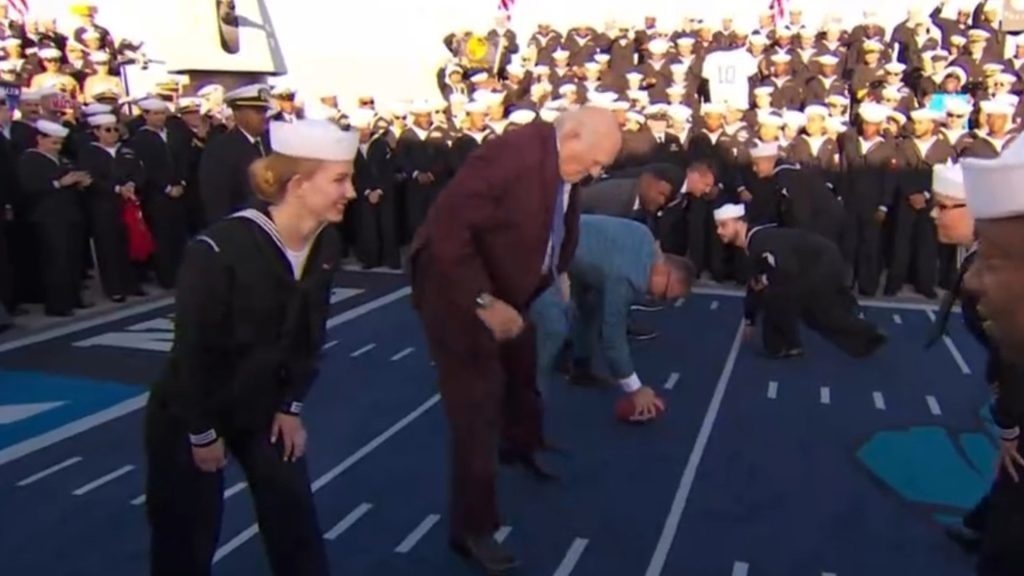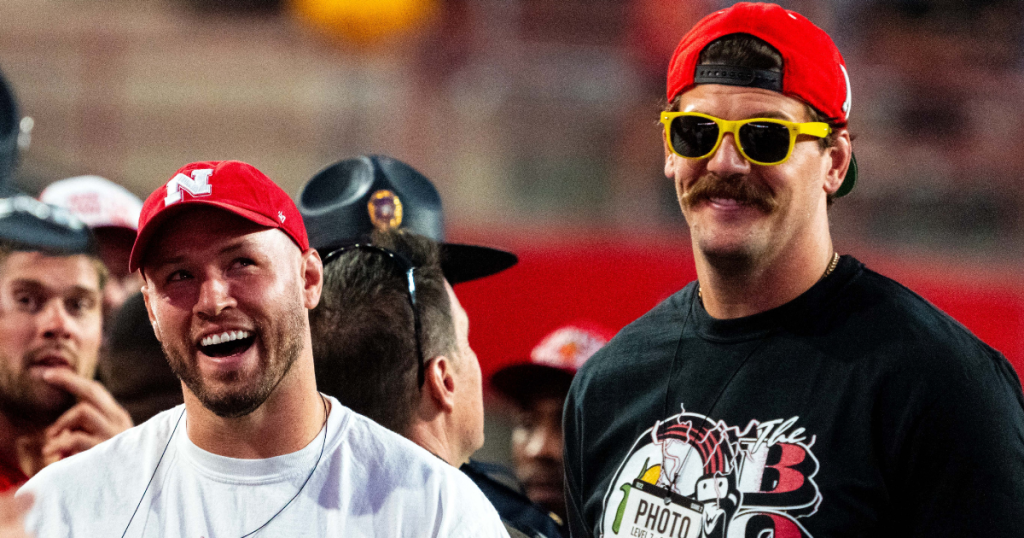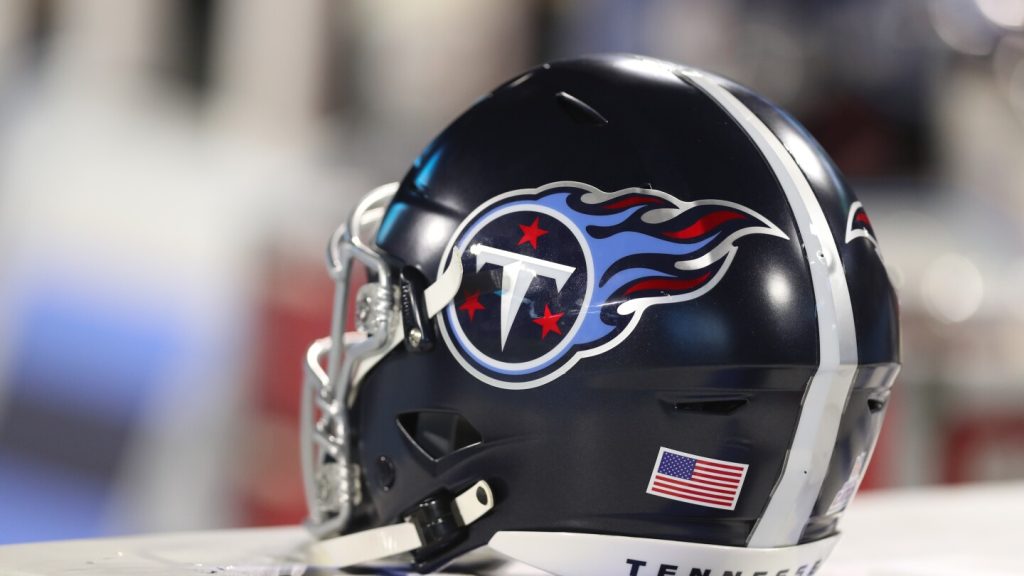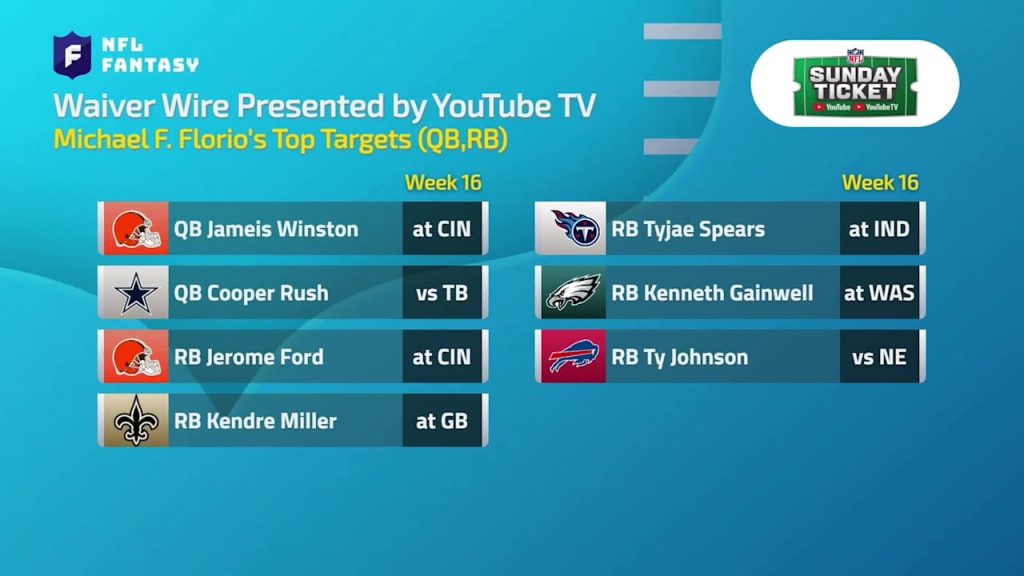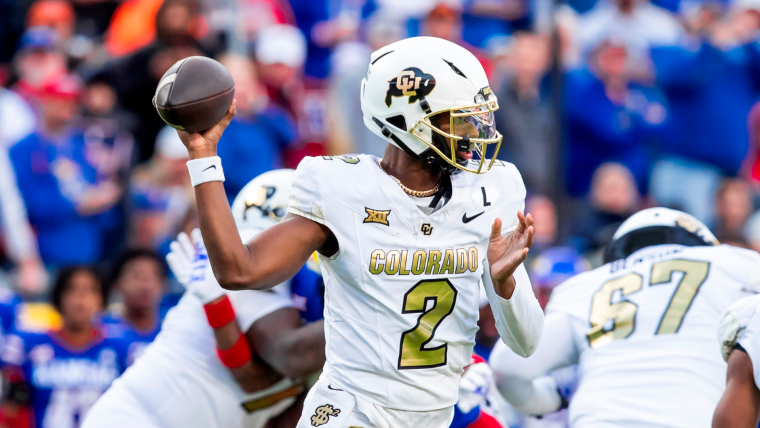Despite a season that saw the Michigan Wolverines finish with a respectable 7-5 record and secure a bowl game appearance, the team made a surprising move by firing offensive coordinator Kirk Campbell. This decision came just days after the conclusion of the regular season, marking a significant shift for the Wolverines and their coaching staff. Campbell, who had been with the program for three years, was in his first year as the offensive coordinator after being elevated by head coach Sherrone Moore.
Offensive Struggles Prompt Change
The Wolverines’ offensive performance this season left much to be desired. They ranked a dismal 112th in points per game, averaging only 22.2. Their passing game was particularly troubling, as they finished 129th with just 133.6 yards per game. While the team managed to secure seven victories, the lack of offensive firepower ultimately led to a reevaluation of Campbell’s role. With several key players departing for the NFL draft and others transferring out following coach Jim Harbaugh’s exit, the challenges were significant.
Coach Sherrone Moore addressed the decision to part ways with Campbell, emphasizing the need for a fresh approach. “This was a decision that I felt was in the best interest of our football program,” Moore stated. “I want to thank Kirk for his hard work and dedication to the university, Michigan football, and our student-athletes. I wish him well in his future coaching endeavors.” This statement reflects the tough but necessary choices that come with the competitive nature of college football.
A Fond Farewell from Campbell
In the wake of his dismissal, Kirk Campbell took to social media to express his gratitude to the Michigan fanbase. His heartfelt message resonated with many, including former Wolverines quarterback J.J. McCarthy, who shared Campbell’s post on X. McCarthy, now a rookie with the Minnesota Vikings, credited Campbell for significantly impacting his career and personal life. “Wouldn’t be where I am without this man. Changed my career, as well as my life. Keep being you,” McCarthy wrote, showcasing the strong relationships that can develop within college football programs.
Campbell’s Journey with the Wolverines
Kirk Campbell’s tenure with the Michigan Wolverines began before the 2022 college football season when he was hired as an offensive analyst. Over the next two years, he worked diligently in that role, gaining valuable experience before being promoted to offensive coordinator. Unfortunately, his time as the offensive coordinator was marred by the team’s inability to generate consistent offensive production.
The Wolverines’ struggles were evident in their overall statistics, which highlighted the need for change. Tied for 112th in points per game and 129th in passing yards, the team faced significant challenges in executing their offensive game plan. Despite these setbacks, the Wolverines managed to secure a bowl game, but the coaching staff recognized that a new direction was necessary to elevate the program.
Looking Ahead: Interim Leadership
As the Wolverines prepare for their upcoming bowl game, the team will not be without leadership on the offensive side. Tight ends coach Steve Casula has been named the interim offensive coordinator. This transition allows Michigan to maintain continuity while seeking a long-term solution to their offensive woes. The bowl game will serve as an opportunity for Casula to showcase his ability to lead the offense and potentially position himself for a permanent role moving forward.
What Lies Ahead for Michigan Football?
The decision to part ways with Kirk Campbell raises questions about the future of Michigan football. As the program looks to rebound from a challenging season, the focus will undoubtedly shift to finding a new offensive coordinator who can inject creativity and effectiveness into the Wolverines’ offense. With the right leadership, Michigan has the potential to build on their recent successes and return to prominence in college football.
The Wolverines’ journey is far from over, and the upcoming bowl game will be a critical moment for the team. Fans and analysts alike will be watching closely to see how the interim leadership adapts and what strategies are employed to maximize the talent on the roster. The stakes are high, and the excitement surrounding Michigan football continues to grow as they navigate this pivotal moment in their program’s history.
In the world of college football, change is often a catalyst for growth. The Wolverines are poised to embrace this change, and with the right moves, they could emerge stronger and more competitive in the seasons to come. As the team prepares for the future, one thing is certain: the passion for Michigan football remains unwavering, and the journey ahead promises to be an exhilarating one.

